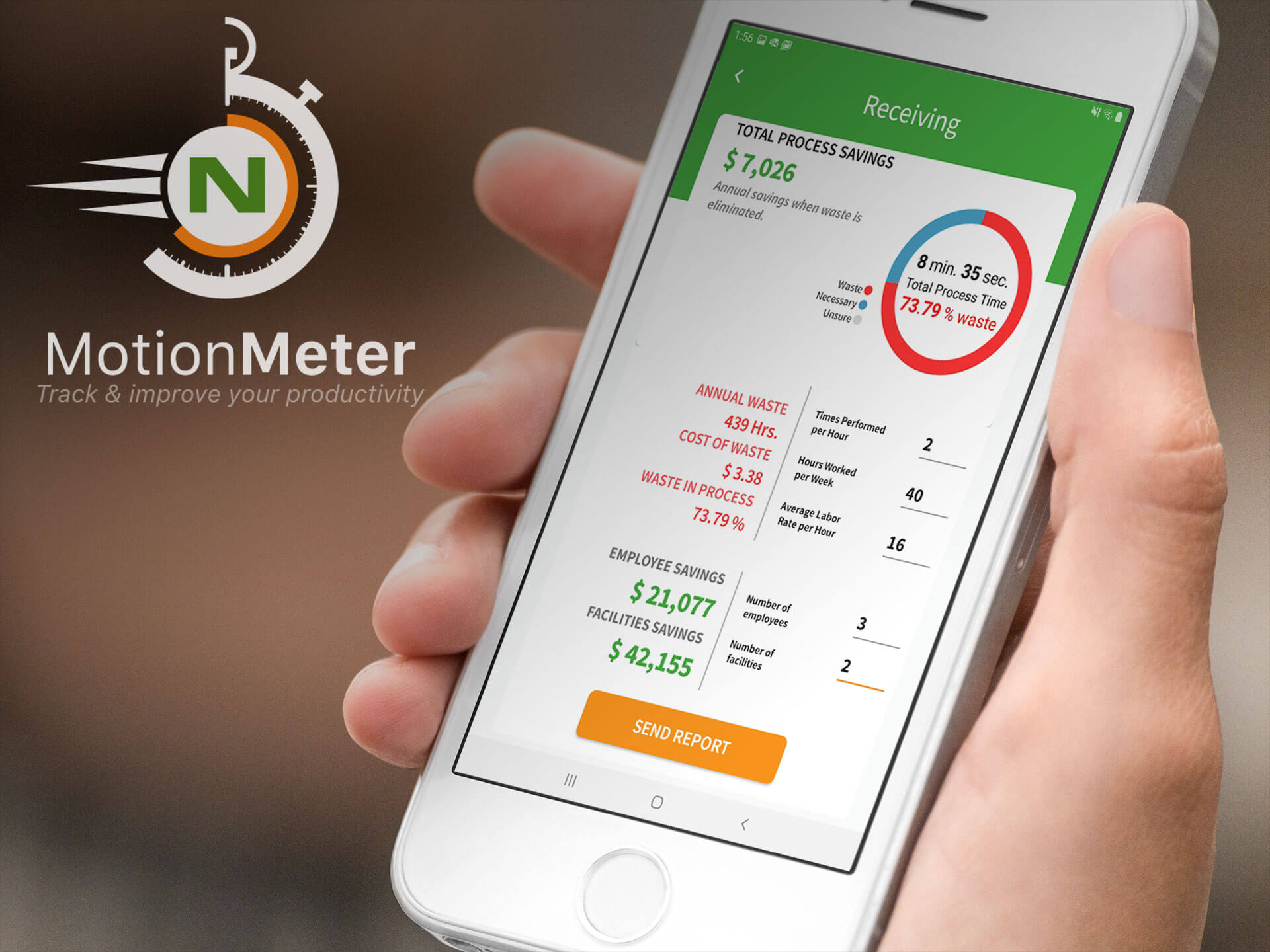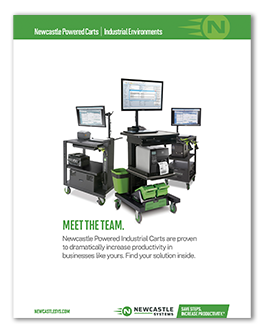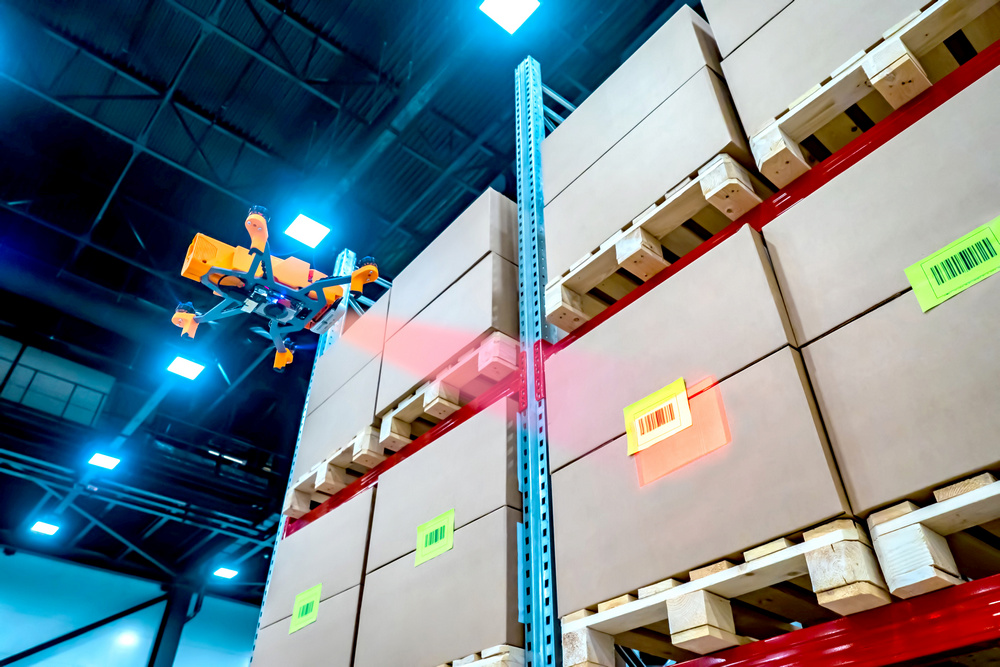
The “future” of logistics seems to be approaching at lightning speed. All of the five- and ten-year plans and predictions we saw just a few short years ago are suddenly being implemented as companies are scrambling to cope with never-ending supply chain challenges.
During the COVID-19 pandemic, too many companies realized they were unable to keep up with the profound changes and disruptions without taking some drastic action. Since the supply chain is the driver of business results for every product-based company, failing to address these challenges efficiently and swiftly could result in a breakdown of the business or entire industries.
What businesses are realizing is that now is the time to transform their business strategies to future-proof the supply chain. Here are some of the solutions your logistics operation can implement to future-proof its business.
1. Sustainable Relationships With Suppliers
 In the past, there was a fair chance that many businesses only had a tenuous relationship at best with their suppliers. In the future, it will be critical that companies establish and maintain strong, long-term relationships with preferred business partners.
In the past, there was a fair chance that many businesses only had a tenuous relationship at best with their suppliers. In the future, it will be critical that companies establish and maintain strong, long-term relationships with preferred business partners.
Future-proofing the supply chain requires creating sustainable relationships with suppliers built on trust and mutual benefit. A business’s reputation depends on product quality and availability, which is impossible to achieve without the right suppliers. Identifying the suppliers that can best meet your needs might take time as you collect data on quality, on-time delivery, and price competitiveness.
Logistics operations are encouraged to form relationships with a network of suppliers. This way, there is always a secondary source if something unexpected happens or performance metrics indicate it’s time for a change. At the same time, businesses need to remain in close communication so they can build on what’s working and quickly address areas in the supply chain that could lead to ongoing trouble.
2. End-to-End Digital Integration
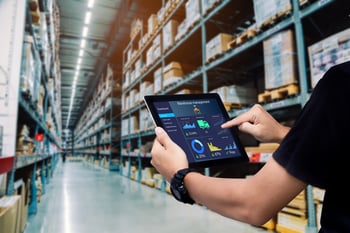 One of the biggest challenges in the “modern” supply chain is the lack of visibility. Supply chain partners are rarely connected and don’t effectively communicate. A customer or business ordering products should be able to see what is happening with that order from start to finish. The future of the supply chain connects every link in the chain, from raw materials to manufacturing to warehouse to final delivery.
One of the biggest challenges in the “modern” supply chain is the lack of visibility. Supply chain partners are rarely connected and don’t effectively communicate. A customer or business ordering products should be able to see what is happening with that order from start to finish. The future of the supply chain connects every link in the chain, from raw materials to manufacturing to warehouse to final delivery.
End-to-end digital integration is a simple enough concept. Most supply chain participants use some type of digital system to manage their operations. Their online management system will capture customer data and even track items while they are in their control using bar codes or RFID tags. But once the times leave their control, that’s the end of it.
But end-to-end digital integration connects the systems of supply chain participants. So the raw material producer can communicate with the manufacturer, who can communicate with the warehouse about production and inventory levels, shipment dates, and other data that provides even more insights and transparency into the supply chain.
3. Adopt Customer-Focused Practices
 Online shopping has become more popular than ever, partially driven by pandemic concerns. Consumers have discovered the convenience of eCommerce. But they also have high expectations. Consumers no longer shop solely based on price, even though that may be a factor in their purchasing decisions. Business reputations depend on things like fast and on-time delivery, quality, and sustainability.
Online shopping has become more popular than ever, partially driven by pandemic concerns. Consumers have discovered the convenience of eCommerce. But they also have high expectations. Consumers no longer shop solely based on price, even though that may be a factor in their purchasing decisions. Business reputations depend on things like fast and on-time delivery, quality, and sustainability.
One of the benefits of digital integration is being able to deliver a better customer experience. Not only does your business have more visibility throughout the supply chain, but it can also provide this information to its customers. Consumers want to see where their purchases are in the fulfillment process from the moment they hit the “Buy Now” button. Many also want information about the suppliers, so they know they are making more sustainable and informed choices.
4. Automate and Optimize Supply Chain Management
One of the best ways to future-proof your logistics operation is by automating and optimizing your processes. For example, following a recent Inland Transport Committee roundtable, Tom Bartman of McKinsey explained how automation is one way that businesses can respond to the impact of ongoing labor shortages and bottlenecks in the supply chain.
Automation solutions have the potential to transform the efficiency of logistics and other product-related industries. This can refer to machines and software solutions that either replace or supplement human efforts. Some of the key logistics processes that benefit from automation include:
1. Administrative and Back-Office Tasks
Logistics companies now employ solutions that automatically handle administrative tasks like purchase orders, accounting, and financial reports, all of which can be time-consuming and subject to potential error when done manually. Digitizing these items gives decision-makers more freedom to focus on other key business areas. And the insights provided by automated systems help management make more informed business decisions.
2. Warehouse Operations
The warehouse is where most logistics-related automation happens. Warehouses have begun implementing solutions like data capture systems that use RFID tags, scanners, and a warehouse management system (WMS). Other solutions include robotics like automated storage and retrieval systems, drones, and collaborative mobile robots to perform tasks consistently and accurately.
3. Inventory Management
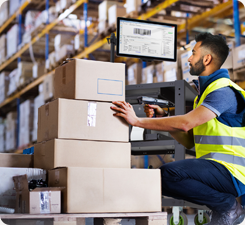 The use of RFID tags, mobile powered carts, and wireless solutions can help warehouses keep more accurate inventory records and avoid errors. Companies can also set up automatic re-ordering of inventory, which can help prevent overstocking items or disappointing customers with stockouts.
The use of RFID tags, mobile powered carts, and wireless solutions can help warehouses keep more accurate inventory records and avoid errors. Companies can also set up automatic re-ordering of inventory, which can help prevent overstocking items or disappointing customers with stockouts.
4. Product Transportation
Artificial intelligence (AI) can track the fastest routes to get goods to customers, thus lowering shipping costs and improving the customer experience. And real-time tracking can improve supply chain visibility, which can help businesses overcome potential delays.
It’s no secret that supply chains continue to struggle as the world emerges from a devastating pandemic and deals with other economic crises. Companies are being advised to take extra care in managing risks that could further interrupt the supply chain by looking ahead as much as possible. Your logistics business can future-proof its operations by implementing a variety of solutions like warehouse technology that boosts productivity and improves efficiency.






